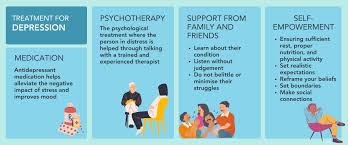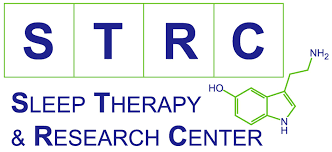Effective Depression Treatment: Strategies and Approaches
Depression is a serious mental health condition that affects millions of people worldwide. It can have a profound impact on one’s quality of life, relationships, and overall well-being. However, the good news is that depression is a treatable condition, and there are effective strategies and approaches available to help individuals manage and overcome it.
Therapy
One of the most common and effective treatments for depression is therapy. Cognitive Behavioral Therapy (CBT) is a widely used approach that helps individuals identify negative thought patterns and behaviors and replace them with healthier ones. Other forms of therapy, such as Interpersonal Therapy (IPT) and Psychodynamic Therapy, can also be beneficial in addressing underlying issues contributing to depression.
Medication
In some cases, medication may be prescribed to help manage symptoms of depression. Antidepressants are commonly used to regulate brain chemistry and improve mood. It’s important for individuals to work closely with their healthcare provider to find the right medication and dosage that works best for them.
Lifestyle Changes
Adopting healthy lifestyle habits can also play a significant role in managing depression. Regular exercise has been shown to boost mood and reduce symptoms of depression. Eating a balanced diet rich in nutrients can support overall mental health. Getting an adequate amount of sleep each night is crucial for emotional well-being.
Social Support
Building a strong support network can be instrumental in coping with depression. Connecting with friends, family members, or support groups can provide emotional support and encouragement during difficult times. Talking openly about one’s feelings with trusted individuals can help reduce feelings of isolation and loneliness.
Mindfulness and Relaxation Techniques
Practicing mindfulness techniques such as meditation, deep breathing exercises, or yoga can help individuals manage stress levels and promote relaxation. These techniques can enhance self-awareness, improve emotional regulation, and cultivate a sense of inner peace.
Conclusion
Effective treatment for depression often involves a combination of therapy, medication, lifestyle changes, social support, and mindfulness practices. It’s important for individuals struggling with depression to seek professional help from mental health professionals who can provide personalized treatment plans tailored to their specific needs. With the right support and resources, individuals can effectively manage their symptoms of depression and work towards improved mental health and well-being.
7 Benefits of Depression Treatment: Enhancing Mood, Coping Skills, and Personal Growth
- Effective in improving mood and overall well-being
- Helps individuals develop coping strategies for managing symptoms
- Provides a safe space for individuals to express their thoughts and feelings
- Reduces the risk of relapse and recurrence of depressive episodes
- Can be tailored to individual needs and preferences
- Promotes self-awareness and personal growth
- Supports better relationships with oneself and others
Challenges in Addressing Depression: Medication Side Effects, Therapy Costs, and Hesitancy to Seek Help
Effective in improving mood and overall well-being
One significant benefit of depression treatment is its effectiveness in improving mood and overall well-being. By addressing the underlying causes of depression through therapy, medication, lifestyle changes, and support systems, individuals can experience a positive shift in their emotional state and quality of life. Effective treatment not only helps alleviate symptoms of depression but also promotes a sense of hope, resilience, and improved mental health. This improvement in mood and well-being can lead to greater productivity, healthier relationships, and an overall enhanced sense of fulfillment and happiness in daily life.
Helps individuals develop coping strategies for managing symptoms
Depression treatment offers a valuable benefit by assisting individuals in developing effective coping strategies to manage their symptoms. By working with mental health professionals, individuals can learn practical techniques and skills to navigate through challenging emotions and situations. These coping strategies empower individuals to better understand their triggers, regulate their emotions, and implement healthy behaviors that promote emotional well-being. Through therapy, medication, and lifestyle adjustments, individuals can build a toolkit of coping mechanisms that enhance their ability to cope with depression symptoms and improve their overall quality of life.
Provides a safe space for individuals to express their thoughts and feelings
Depression treatment offers a valuable pro by providing a safe and supportive environment for individuals to openly express their thoughts and feelings. This safe space allows individuals to share their emotions, fears, and struggles without judgment or criticism. By fostering open communication and emotional expression, depression treatment enables individuals to explore their innermost thoughts, gain insights into their emotions, and work through challenges in a supportive setting. This aspect of treatment can help individuals feel heard, validated, and understood as they navigate their journey towards healing and recovery.
Reduces the risk of relapse and recurrence of depressive episodes
One significant benefit of depression treatment is its ability to reduce the risk of relapse and recurrence of depressive episodes. Through therapy, medication, lifestyle changes, and other interventions, individuals can learn coping mechanisms, develop resilience, and address underlying issues that contribute to their depression. By actively managing their mental health and seeking support when needed, individuals are better equipped to prevent future episodes of depression and maintain a healthier emotional balance over time. This proactive approach to treatment not only helps individuals navigate current challenges but also empowers them to build a foundation for long-term mental well-being.
Can be tailored to individual needs and preferences
Depression treatment offers the significant advantage of being customizable to individual needs and preferences. This personalized approach allows mental health professionals to tailor treatment plans to each person’s unique circumstances, symptoms, and goals. By considering individual preferences and factors such as lifestyle, personality, and past experiences, treatment can be more effective and engaging for the individual seeking help. This tailored approach helps ensure that the treatment aligns with the individual’s comfort level and motivation, ultimately increasing the likelihood of successful outcomes in managing and overcoming depression.
Promotes self-awareness and personal growth
Depression treatment offers a valuable pro by promoting self-awareness and fostering personal growth. Through therapy, individuals are guided to explore their thoughts, emotions, and behaviors, gaining deeper insight into themselves and their inner workings. This increased self-awareness allows individuals to identify patterns, triggers, and underlying issues contributing to their depression. By addressing these aspects, individuals can develop a greater understanding of themselves, leading to personal growth and positive changes in their lives. Ultimately, this process empowers individuals to make healthier choices, build resilience, and cultivate a stronger sense of self.
Supports better relationships with oneself and others
Effective depression treatment supports better relationships with oneself and others by helping individuals address underlying emotional issues, improve self-awareness, and develop healthier coping mechanisms. Through therapy, medication, lifestyle changes, and social support, individuals can gain insight into their thoughts and behaviors, enhance their self-esteem, and learn to communicate more effectively with others. By managing their depression symptoms, individuals can cultivate a greater sense of self-compassion, resilience, and empathy towards themselves and those around them, leading to stronger and more fulfilling relationships.
Side effects of medication
One significant drawback of depression treatment through medication is the potential for experiencing side effects. For some individuals, taking antidepressant medications can lead to unpleasant effects like nausea, weight gain, or sexual dysfunction. These side effects can not only be physically uncomfortable but also impact a person’s quality of life and adherence to their treatment plan. It is essential for individuals to communicate openly with their healthcare provider about any side effects they may be experiencing to explore alternative options and ensure the best possible outcome for their mental health journey.
Cost of therapy
The cost of therapy can be a significant barrier to accessing treatment for depression. Therapy sessions can be expensive, especially for individuals without insurance coverage. This financial burden can make it challenging for some people to afford ongoing therapy, limiting their access to much-needed mental health support. As a result, individuals facing financial constraints may struggle to receive the consistent and comprehensive care necessary for effectively managing and overcoming depression.
Reluctance to seek help
The reluctance to seek help for depression due to the stigma surrounding mental health issues can be a significant barrier to treatment. Many individuals may feel ashamed or embarrassed about their condition, leading them to avoid reaching out for support. This reluctance can prolong their suffering and delay their recovery process, as early intervention is crucial in effectively managing and overcoming depression. Breaking down the stigma associated with mental health and encouraging open conversations about depression can help create a more supportive environment where individuals feel empowered to seek the help they need.


